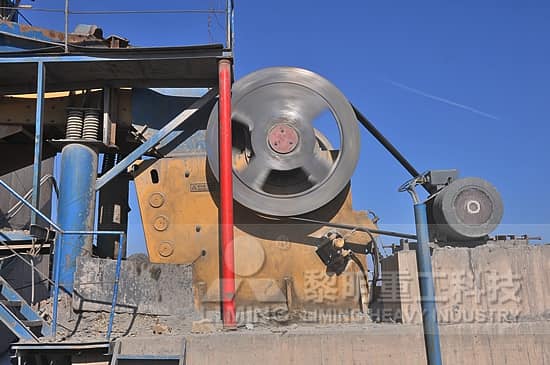How to Choose the Right Jaw Crusher for Efficient Mineral Processing in Africa?
Africa’s vast mineral wealth—from gold and copper to diamonds and iron ore—drives its economic growth. However, maximizing productivity in mining operations requires robust, adaptable equipment tailored to the continent’s unique challenges. Jaw crushers, as primary crushing workhorses, play a pivotal role in mineral processing. But selecting the right jaw crusher for African conditions demands careful consideration of factors like ore type, operational costs, and environmental resilience. This guide breaks down the key steps to choosing the optimal jaw crusher for your African mining project.
Understanding Africa’s Mineral Processing Challenges
Africa’s mining sector faces distinct hurdles that influence equipment selection:
- Diverse Ore Types: From hard granite to abrasive iron ore, geological variability demands crushers with high wear resistance.
- Harsh Environments: Extreme heat, dust, and humidity (e.g., Sahel regions or Central African rainforests) can strain machinery.
- Infrastructure Limitations: Intermittent power supply and remote locations require energy-efficient, portable solutions.
- Sustainability Pressures: Stricter regulations on emissions and waste management push miners toward eco-friendly technologies.
Jaw crushers must address these challenges while delivering reliability and cost-efficiency.

6 Key Factors to Consider When Choosing a Jaw Crusher
1. Ore Characteristics
- Hardness and Abrasiveness: For hard rocks like quartz or kimberlite, opt for crushers with manganese steel jaws and reinforced frames.
- Feed Size: Ensure the crusher’s gape (entry opening) matches your largest ore chunks. For example, a 1,500 x 1,200 mm opening handles large copper ore blocks common in Zambia.
- Moisture Content: Sticky ores may require crushers with anti-clogging features.
2. Production Capacity Requirements
Calculate your target output (tons per hour) based on mine size and processing goals. For example:
- Small-scale gold mines in Ghana may need a 30–50 tph capacity.
- Large iron ore operations in South Africa might require 500+ tph crushers.
3. Power Supply and Energy Efficiency
In regions with unstable grids (e.g., rural DRC or Mali), prioritize crushers with:
- Hybrid or diesel-electric options for off-grid operation.
- Low energy consumption designs, such as those with hydraulic adjustment systems.
4. Mobility and Installation Flexibility
- Portable jaw crushers (wheeled or track-mounted) suit temporary or remote sites, like lithium exploration projects in Zimbabwe.
- Modular designs simplify assembly in areas lacking infrastructure.
5. Maintenance and Durability
- Easy access to wear parts: Choose crushers with replaceable jaw plates and toggle systems to minimize downtime.
- Dust and heat resistance: Look for sealed bearings and cooling systems for Saharan or Kalahari operations.
6. Environmental Compliance
- Noise reduction: Crushers with soundproofing enclosures align with community and regulatory standards.
- Dust suppression: Integrated water spray systems reduce particulate emissions.
Case Study: Optimizing Copper Ore Crushing in Zambia
A Zambian copper mine replaced its outdated crusher with a Nordberg C150™ jaw crusher, achieving:
- 30% higher throughput due to optimized crushing kinematics.
- 20% lower energy use via advanced hydraulic drive technology.
- Compliance with Zambia’s Environmental Management Agency (ZEMA) standards through reduced dust emissions.
Future-Proofing: Smart Technologies for Jaw Crushers
Emerging innovations enhance efficiency and sustainability:
- IoT Sensors: Monitor jaw plate wear, vibration, and performance remotely via platforms like Predix or MindSphere.
- AI-Powered Optimization: Machine learning adjusts crushing parameters in real-time for maximum yield.
- Solar Hybrid Systems: Pair crushers with solar panels to cut diesel dependency in sun-rich regions like Namibia.
Conclusion: Strategic Investment for Long-Term Success
Choosing the right jaw crusher in Africa’s mineral sector isn’t just about specs—it’s about aligning with local challenges, sustainability goals, and operational realities. By prioritizing durability, energy efficiency, and adaptability, miners can boost productivity, reduce costs, and position themselves as leaders in responsible resource extraction. Whether you’re processing platinum in South Africa or cobalt in the DRC, the right jaw crusher is a cornerstone of profitable, future-ready operations.
- > Vibrating Feeders in Chile: Enhancing Material Handling Efficiency in Mining and Construction
- > High-Performance Jaw Crushers for Stone Production Lines
- > High-Efficiency Jaw Crusher for 500 Tons Per Hour: Applications and Benefits
- > Advanced Fine Impact Crushers in Russia
- > High-Performance Vibrating Feeders in Nigeria
- > Vertical Shaft Impact Crusher for Granite Sand Making
- > Jaw Crusher for Hard Rock Crushing in Tunnel Construction
- > Equipment Configuration Recommendations for a 50 TPH Stone Crushing Plant
Hot Product


Online




Message
